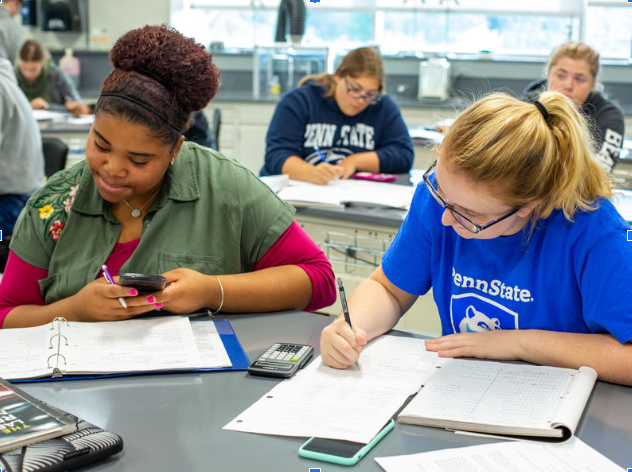Leg Bouncing: A Student-Born Pandemic
March 1, 2023
It is inescapable. You observe it in your World Literature class when you assemble in a class discussion circle. You notice the knees frantically rising up and down during your history test. It’s even there when you’re flipping the pages of your independent reading book, trying to focus; the rhythmic click-clack is ringing in your ears and drowning out the words. Behold, the student-born pandemic that plagues schools across the world, including our very own Tenafly High School: leg bouncing.
Leg bouncing, foot tapping, and pen spinning are increasingly common in students nowadays. These are physical manifestations of stress, anxiety, boredom, and fatigue, all of which high-school students are likely to experience.
Boredom
Undoubtedly, school days can be lengthy and weary for many students, so bouncing our legs stimulates our bodies to distract us from boredom/fatigue. It’s a fidget mechanism that may pass the sluggish hours a bit more briskly.
Concentration
Quite the opposite of boredom, moving your legs while concentrating on a task or solving a problem is just as plausible. While some prefer moving their bodies to help focus, others may enjoy listening to music, and there are even people who prefer complete silence; everyone’s brain is different, and it’s important to listen to your body!
Stress/Anxiety
With the many tests, quizzes, and homework teachers assign us, stress and anxiety are feasible. According to an article from Metro.co.uk, “leg bouncing can be a way to self-soothe in times of tension, helping you to feel more relaxed when you’re experiencing high levels of stress.” Stress and anxiety are an even broader challenge that school districts are trying to tackle around the world. Leg bouncing can be a byproduct of loads of work stockpiling, a greatly weighted exam, class presentations, etc. While it is important for students to take care of their mental health, it is also notable for teachers to observe their students’ behavior and be open-minded.
In case you find yourself involuntarily knee-bouncing and heel-tapping and want to reduce it, here’s what you can do!
Change Your Posture
Changing your posture so that your body is more relaxed/comfortable may prevent additional fidgeting. Or maybe even sitting up will allow you to be more attentive in class.
Sleep
Sleep is essential to increasing concentration and reducing stress, so if you’re not sleeping enough, you might feel a decrease in energy and motivation, which can lead to frustration and stress. The American Academy of Sleep Medicine recommends 8-10 hours of sleep a day for teens aged 13-18. Although this may sound impossible for students who cram strenuous courses and extracurriculars, it is crucial to try! Whether you are sleeping just half an hour earlier or squeezing an extra hour or two into your busy schedule, try increasing your amount of sleep every day!
Yoga/Meditation
Taking a minute out of your day to breathe deeply, close your eyes, and pivot yourself to mindfulness can make a huge difference! Starting your day with a stretch or yoga can make you feel rejuvenated and ready for the rest of your day.


















































































































































